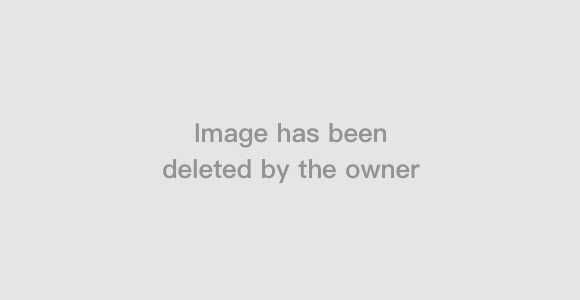-
Australia
Copyright © 2025 Powered by BCI Media Group Pty Ltd
Confirm Submission
Are you sure want to adding all Products to your Library?
Contact Detail


With states gradually lifting social distancing restrictions in the coming weeks, what does the Australian public landscape look like post Covid-19? Will there be any changes in the way that we as Australians behave regarding hand hygiene standards, what is the likelihood of Covid-19 becoming an issue again and what solutions are best in maximizing virus removal?
While the country faces enormous death rates, mass unemployment and a pending Global Financial Crisis as a direct result of Covid -19, there has been a social and cultural shift as we a community have an increased focus on effective hand hygiene practices.. Studies have shown that placing emphasis through a compelling narrative around hand hygiene, increased the likelihood of managing hand hygiene practices regularly (Salama et al: 2013). As a developer of leading hand hygiene products for many years this societal shift in hand Hygiene practices fall in the scope of the Enware Rsearch and development team. In a post Covid-19 world it is highly likely that hand hygiene practices will be advertised and promoted by various organisations, not just for awareness purposes, but also from a psychological perspective members of the public are more likely to comply with practicing hand hygiene in public spaces. Australians will be required to change their understanding of good hand hygiene practices which will require a social and cultural shift to us ensure we can return to a level of normality in a post Covid-19 world.

So, what is the likelihood of Covid-19 becoming an issue again, are there ways that the virus could resurface as a credible health concern again to the Australian public? Studies show that Covid-19 can survive for anywhere between 4 to 72 hours depending on surface (The New England Journal of Medicine: 2020). The likelihood of a Covid-19 spreading again is feasible; this is despite the growing decline of infections over the past month. The consequences of neglecting hand hygiene practices can be costly, in Europe it has resulted in an increase of 16 million extra patient hospital days (World Health Organisation: 2009). In the United States, each year hospital acquired infections (HAI) cost over 35 billion US dollars each year (Scott: 2009). Neglecting hand hygiene in a controlled environment such as a hospital setting is one thing, but doing so in public spaces could undo all of the hard work that Australians have achieved thus far. Imagine for instance someone neglecting handwashing protocol at a supermarket setting, the spread of viruses on surfaces could easily spread to a shopper which can then spread to family members or friends. In a future Covid-19 world, it’s likely that at least in the next few months hand hygiene, complimented with better cleaning protocols would still be applied in businesses and the general public.

Knowing that Covid-19 isn’t going to be completely eradicated in the future, what are the best solutions to maximising hand hygiene for the general public? Professor Pallor Thordarson has indicated that the most effective form of hand washing is through using soap (Vox: 2020). Soap when combined with water, pulls viruses apart as the soap is attracted to the fat cells from the virus, it is then pulled apart and removed by the water as soap is also attracted by the water upon contact (Vox: 2020. In comparison, for hand sanitizer to be effective it requires 40% or greater dilution and virus levels would be reduced within thirty seconds (Van Beusekom: 2020). In a post Covid-19 world, it’s highly likely that soaps will become more popular over time rather than hand sanitizers and we are likely to see products being created to encourage the use of soap in public .
, the key to ensuring that Covid-19 does not become a public health concern again is through the maintaining good hygiene practices and using soaps for handwashing. Neglecting such practices could result in Australia reverting to social distancing restrictions once more.
At Enware we have developed a range of Hand Hygiene solutions to help Australia prepare for living in a r the post Covid19 world. One of these initiatives is an interactive digital hand washing guidance. This has been designed to provide an educational narrative to each hand washing episode along with the capability to record the efficacy of hand hygiene events which allows benchmarking and the ability to show how various messages change behaviors in the facility. This is currently being trialed in a number of hospitals across the country. Enware has also have developed a range of products to provide practical solutions reducing physical contact during hand hygiene moments for achieving better hand hygiene outcomes., to learn about these click here (hyperlink).
Sources:
World Health Organization (2009). WHO guidelines on hand hygiene in health care: first global patient safety challenge. Clean care is safer care: a summary, http://www.who.int/gpsc/5may/tools/who_guidelines-handhygiene_summary.pdf
Vox (2020), How soap absolutely annihilates the Coronavirus, https://www.vox.com/science-and-health/2020/3/11/21173187/coronavirus-covid-19-hand-washing-sanitizer-compared-soap-is-dope
Scott RD (2009), The direct medical costs of healthcare-associated infections in US hospitals and the benefits of prevention, https://www.cdc.gov/HAI/pdfs/hai/Scott_CostPaper.pdf
The New England Journal of Medicine (2020), Aerosol and Surface Stability of SARS-CoV-2
as Compared with SARS-CoV-1, Massachusetts Medical Society; 2020. USA.
Mona F. Salamaa, Wafaa Y. Jamala, Haifa Al Mousad, Khaled A. Al-AbdulGhani, Vincent O.Rotimi (2013), The effect of hand hygiene compliance on hospital-acquired infections in an ICU setting in a Kuwaiti teaching hospital, Journal of Infection and Public Health, Volume 6 Issue 1.
Mary Van Beusekom (2020), Studies: Hand sanitizers kill COVID-19 virus, e-consults appropriate, https://www.cidrap.umn.edu/news-perspective/2020/04/studies-hand-sanitizers-kill-covid-19-virus-e-consults-appropriate



